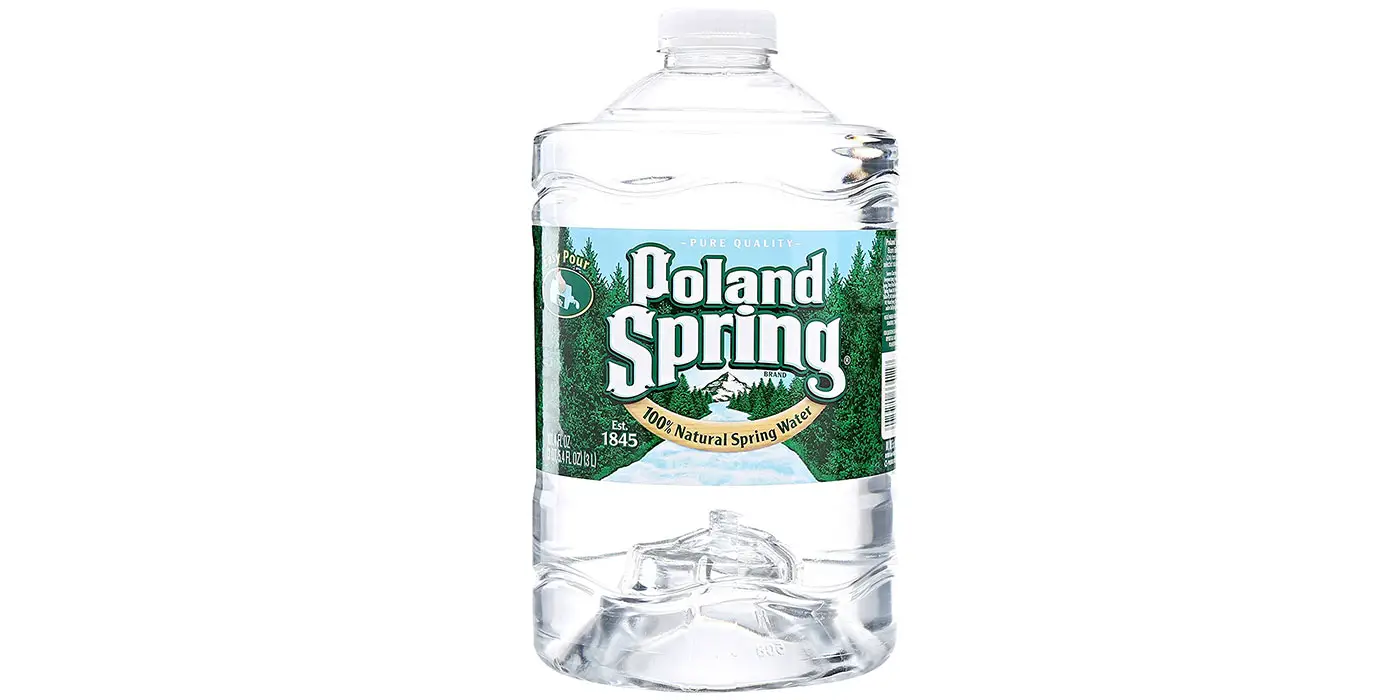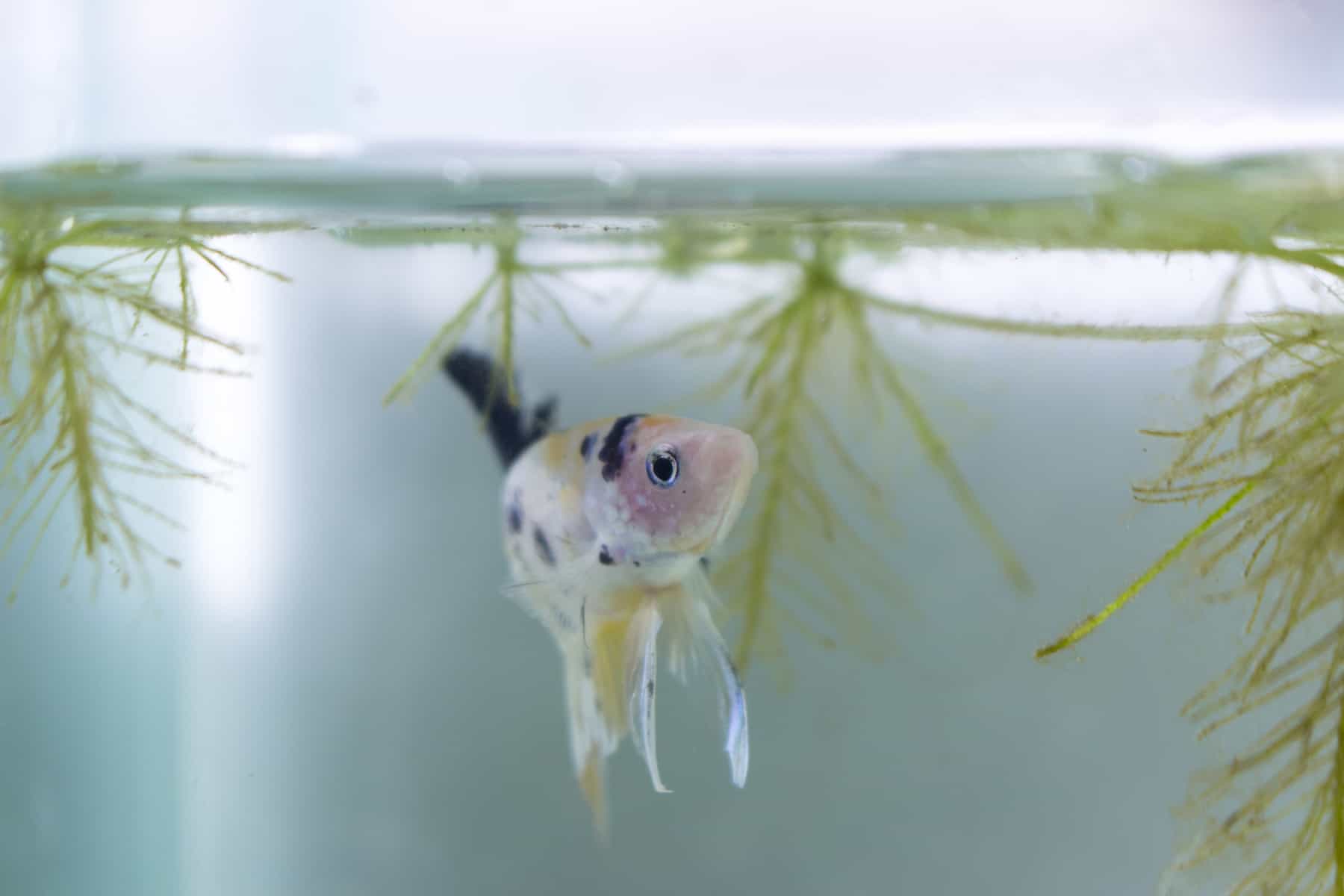Are you considering getting a Betta fish as a pet? If so, you may be wondering about the best type of water to use in their tank. One popular option is spring water, but do you need to condition it first? In this article, we will explore the benefits and drawbacks of using spring water for Betta fish and whether or not it needs to be treated before use.
While it may seem simple to just pour spring water into your Betta fish tank, there are a few things to consider. In this article, we will discuss the importance of properly conditioning water for your Betta fish, the benefits and potential risks of using spring water, and whether or not it is necessary to treat it before adding it to your pet’s environment. So, let’s dive in and learn more about the best water options for Betta fish.
Yes, you should condition spring water for betta fish. Spring water may contain harmful chemicals and minerals that can be harmful to your betta fish. Conditioning the water using a water conditioner helps to remove these harmful substances, making the water safe for your betta fish. Additionally, conditioning the water helps to establish a healthy environment for your fish by adding beneficial minerals and nutrients to the water.

Do You Have to Condition Spring Water for Betta Fish?
As a betta fish owner, you want to make sure that your fish is living in a clean and healthy environment. One of the most important factors to consider is the type of water you use. Some people opt for spring water, but you may be wondering if you need to condition it before adding it to your betta tank. In this article, we’ll explore the pros and cons of using spring water for betta fish and whether or not you need to condition it.
What is Spring Water?
Spring water comes from natural sources, such as underground aquifers or springs. Unlike tap water, spring water is not treated with chemicals, such as chlorine. It’s often marketed as a healthier alternative to tap water, as it’s believed to contain more minerals and nutrients.
Benefits of Using Spring Water for Betta Fish
There are several benefits to using spring water for your betta fish. Firstly, it’s free from harmful chemicals, such as chlorine and chloramine, which can be found in tap water. These chemicals can be harmful to betta fish, as they can damage their gills and fins. Secondly, spring water may contain beneficial minerals and nutrients, which can promote betta fish health and wellbeing.
Drawbacks of Using Spring Water for Betta Fish
While spring water may seem like the perfect choice for betta fish, there are some drawbacks to consider. Firstly, it can be expensive, especially if you’re using it for regular water changes. Secondly, spring water may not be consistent in terms of its mineral content, which can make it difficult to maintain a stable pH level in your betta tank.
Do You Need to Condition Spring Water for Betta Fish?
If you decide to use spring water for your betta fish, you may be wondering if you need to condition it before adding it to your tank. The answer is yes, you do need to condition spring water for betta fish.
Why Do You Need to Condition Spring Water?
While spring water is free from harmful chemicals, it still needs to be conditioned before adding it to your betta tank. This is because it may contain heavy metals, such as copper and lead, which can be toxic to betta fish. Additionally, spring water may not have a stable pH level, which can cause stress and health problems for your betta.
How to Condition Spring Water for Betta Fish
To condition spring water for betta fish, you’ll need to use a water conditioner. Water conditioners are designed to remove any harmful chemicals and heavy metals from the water, as well as stabilizing the pH level. Follow the instructions on the water conditioner bottle carefully, as the dosage will depend on the size of your betta tank.
Benefits of Using Water Conditioner for Betta Fish
Using a water conditioner for betta fish has several benefits. Firstly, it removes any harmful chemicals and heavy metals from the water, making it safe for your betta to live in. Secondly, it stabilizes the pH level, which can reduce stress and promote betta fish health.
Tap Water vs. Spring Water for Betta Fish
While spring water may seem like a good choice for betta fish, tap water is also a viable option. Most tap water is treated with chlorine, which can be removed with a water conditioner. Additionally, tap water is more consistent in terms of its mineral content, which can make it easier to maintain a stable pH level in your betta tank.
Conclusion
In conclusion, using spring water for betta fish can have its benefits, but it’s important to condition it before adding it to your tank. Spring water may contain heavy metals and may not have a consistent pH level, which can be harmful to betta fish. By using a water conditioner, you can remove any harmful chemicals and heavy metals, as well as stabilizing the pH level. Ultimately, the choice between tap water and spring water comes down to personal preference and budget.
Frequently Asked Questions
Do You Have to Condition Spring Water for Betta Fish?
Yes, you should condition spring water for your betta fish. While spring water might seem like a good option, it can contain various minerals and chemicals that are harmful to your fish. Chlorine and chloramines are commonly found in tap water and can be fatal to your fish. Therefore, it’s essential to condition spring water to remove any harmful substances.
Conditioning spring water involves treating it with a water conditioner that neutralizes harmful chemicals and minerals. These products typically contain sodium thiosulfate and sodium chloride, which remove chlorine and chloramines, making the water safe for your betta fish. You should always read the instructions on the water conditioner to ensure you are using the correct amount and allowing it to sit for the recommended time before adding your fish.
What Happens If You Don’t Condition Spring Water for Betta Fish?
If you don’t condition spring water for your betta fish, they could become sick or even die. Chlorine and chloramines found in tap water and unconditioned spring water can cause significant harm to your fish. These chemicals can damage their gills, making it difficult for them to breathe.
Additionally, unconditioned spring water can contain minerals that can alter the pH levels of the water, making it too acidic or alkaline for your fish to survive. Water that is too acidic or alkaline can cause your betta fish to become stressed and prone to disease. Therefore, it’s crucial to condition spring water before adding your betta fish to their tank.
How Do You Condition Spring Water for Betta Fish?
To condition spring water for your betta fish, you will need to use a water conditioner designed for fish tanks. These products typically contain sodium thiosulfate and sodium chloride, which neutralize chlorine and chloramines.
To condition your spring water, start by filling a clean container with the amount of water you need for your fish tank. Next, add the recommended amount of water conditioner to the container and stir the water. Let the water sit for the recommended time before adding it to your fish tank.
It’s important to note that you should always read the instructions on the water conditioner as the amount and time needed can vary between products. Additionally, you should always test the water in your tank to ensure the pH levels are suitable for your betta fish.
Can You Use Tap Water Instead of Spring Water for Betta Fish?
Yes, you can use tap water for your betta fish, but it needs to be conditioned first. Tap water contains chlorine and chloramines that are harmful to your fish, and minerals that can alter the pH levels of the water.
To use tap water for your betta fish, fill a clean container with the amount of water you need for your fish tank. Next, add the recommended amount of water conditioner to the container and stir the water. Allow the water to sit for the recommended time before adding it to your fish tank.
It’s important to note that some tap water may contain higher levels of minerals or chemicals than others, which may require additional treatment. You should always test the water in your tank to ensure the pH levels are suitable for your betta fish.
What Should You Look for When Choosing a Water Conditioner for Betta Fish?
When choosing a water conditioner for your betta fish, you should look for a product that neutralizes chlorine and chloramines, removes heavy metals and other toxins, and stabilizes the pH levels of the water.
Some water conditioners also contain additional vitamins and minerals that can help support the health and wellbeing of your betta fish. You should also consider the size of your tank and the amount of water you will need to condition when selecting a product.
It’s important to read reviews and do your research before choosing a water conditioner for your betta fish. You should also follow the instructions carefully to ensure you are using the product correctly and safely for your fish.

(Colorful Life )All about betta fish water to make the betta stronger.
In conclusion, while spring water may seem like a natural and appealing choice for your betta fish, it is important to consider the potential risks and benefits. While untreated spring water may contain beneficial minerals and nutrients, it may also contain harmful toxins and bacteria that could harm your fish. Therefore, conditioning the water with a suitable water conditioner is crucial to ensure the health and well-being of your betta fish.
By conditioning the spring water, you can remove any harmful chemicals and balance the pH levels to create a safe and healthy environment for your betta fish. Additionally, conditioning the water can help to promote the growth and vitality of your fish, leading to a happier and healthier pet.
Overall, while it may seem like an unnecessary step, conditioning spring water for betta fish is an essential part of providing a safe and healthy environment for your beloved pet. With the right water conditioner and a little bit of effort, you can ensure that your betta fish thrives in their aquatic home.
